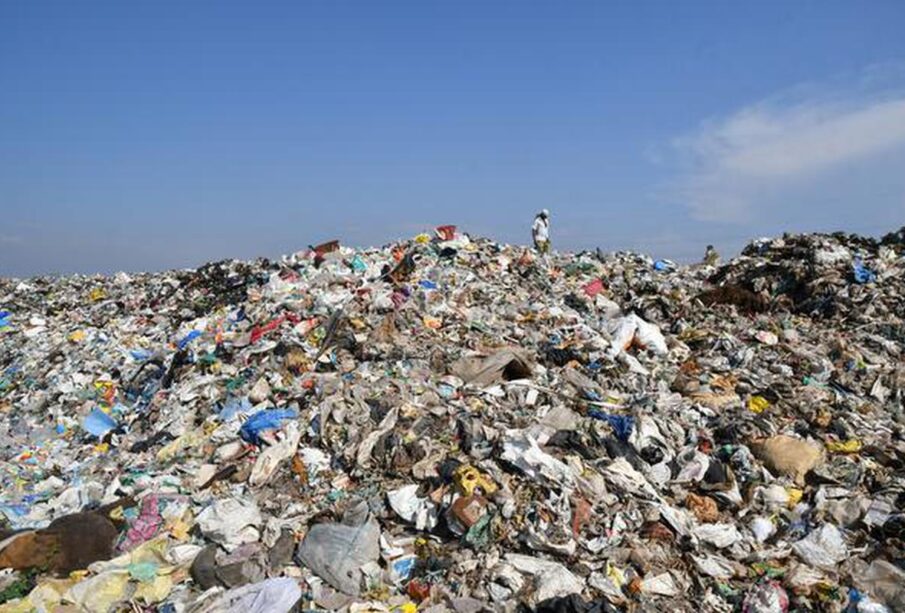What Are the Effects of Municipal Solid Waste on the Environment?

Municipal Solid Waste (MSW) is a crucial issue that has been plaguing the world for quite some time now. It refers to the waste generated by homes, businesses, and institutions in cities and towns. With the rise in population and urbanization, the amount of MSW generated each day has also increased significantly. This has led to various environmental problems that are affecting our planet negatively. In this blog, we will discuss what municipal solid waste is, the challenges faced in managing it, and its effects on the environment. We will also delve into the causes of MSW pollution and the benefits of reducing it. Read on to learn more about how you can play your part in creating a healthier environment for all.
What is Municipal Solid Waste?
Municipal solid waste (MSW) refers to the everyday waste and trash produced by households, businesses, and institutions in a community. This can include everything from food scraps and paper to appliances and furniture. It is important for communities to properly manage their MSW in order to protect public health and the environment. This includes implementing recycling programs, composting, and properly disposing of hazardous materials. Effective MSW management also involves reducing the amount of waste produced in the first place through education and awareness campaigns. By working together to manage our MSW responsibly, we can create a cleaner, healthier environment for ourselves and future generations.
Solid Waste Management Challenges
There are many solid waste management challenges that need to be addressed. Some of these include:
- Increasing amount of waste: An increasing amount of solid waste is generated each year. This is due to population growth and increased consumption.
- Limited landfill space: A limited amount of space is available for landfills. This means there is increased pressure to find alternative methods of disposal of solid waste.
- Environmental concerns: There are growing environmental concerns about the impact of solid waste on the environment. This includes greenhouse gas emissions, pollution, and resource depletion.
- Cost: The cost of managing solid waste is increasing as the volume and complexity of waste increases.
Effects of Municipal Solid Waste on the Environment
Municipal solid waste, or trash generated by households and businesses, can significantly impact the environment. Here are some of the effects of municipal solid waste on the environment:
- Landfill pollution: When the trash is disposed of in landfills, it can pollute the soil and groundwater with toxic chemicals and leachate.
- Air pollution: Burning trash or emissions from landfill sites can release harmful gases into the atmosphere, contributing to air pollution.
- Water pollution: Leachate from landfills can contaminate nearby water sources, leading to water pollution.
- Soil degradation: The accumulation of waste in landfills can cause soil degradation, making it difficult for plants to grow.
- Wildlife hazards: Trash that is not properly disposed of can pose a hazard to wildlife, who may ingest it or become entangled in it.
- Resource depletion: The production and disposal of municipal solid waste can lead to the depletion of natural resources and contribute to climate change.
By being mindful of our waste production and properly disposing of our trash, we can help mitigate these harmful effects on the environment.
Causes of Municipal Solid Waste Pollution
The improper disposal of MSW causes municipal solid waste (MSW) pollution. MSW includes any solid waste that is generated by households, businesses, and institutions. Improper disposal of MSW can include:
- Burning MSW
- Dumping MSW in landfills
- Littering
- Improperly recycling MSW
Burning MSW releases harmful pollutants into the air, including particulate matter, carbon monoxide, volatile organic compounds, and dioxins/furans. Dumping MSW in landfills can contaminate groundwater and soil. Littering creates unsightly conditions and can harm wildlife and negatively impact human health. Improperly recycling MSW can lead to contamination of recyclable materials and the release of greenhouse gases.
Benefits of Reducing and Managing Municipal Solid Waste
Reducing and managing municipal solid waste has numerous benefits for both the environment and human health. Some of the key benefits include:
- Environmental Protection: Proper management of waste can help protect our environment by reducing air, water, and soil pollution. This is achieved by minimizing the amount of waste that goes into landfills and reducing greenhouse gas emissions.
- Resource Conservation: Waste reduction and recycling helps conserve natural resources such as timber, water, and minerals. By recycling, we can reduce the demand for these resources to produce new products.
- Economic Benefits: Proper management of waste can lead to cost savings for municipalities and businesses in the long term. Recycling and composting programs can create jobs, reduce disposal costs, and generate revenue from the sale of recyclable materials.
- Improved Public Health: Reducing waste can improve public health by decreasing exposure to harmful chemicals and pollutants that are released from landfills. It also reduces the risk of disease transmission associated with poorly managed waste.
- Environmental Sustainability: By reducing and managing waste properly, we can contribute to a more sustainable environment for future generations. Sustainable waste management practices ensure that natural resources are conserved, pollution is minimized, and the impact of waste on the environment is reduced.
However, by reducing and properly managing waste, we can mitigate these effects and provide numerous benefits for both the environment and human health. Proper waste management practices are crucial in creating a healthier planet for future generations through resource conservation, cost savings, improved public health, and environmental sustainability.
Conclusion
In conclusion, the effects of municipal solid waste on the environment are far-reaching and can have significant consequences for both humans and wildlife. Proper waste management is essential to mitigate these impacts, but it’s also important to reduce the amount of waste we generate in the first place. By adopting sustainable practices such as recycling, composting, and reducing our consumption of single-use products, we can work towards a cleaner and healthier environment for all. Let’s work together to positively impact our planet by managing our waste responsibly. Learn more about how you can reduce your environmental footprint by reading our comprehensive guide on sustainable living practices.











